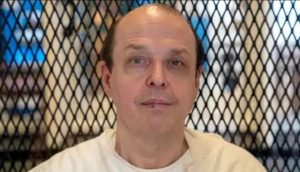 -Editorial
-Editorial
International Wrongful Conviction Day is being observed for the 12th year, drawing attention to the thousands of people exonerated across the United States and the lasting scars of wrongful imprisonment. This year’s commemoration comes as Texas prepares to execute a man whose conviction has become one of the most debated cases in the nation’s death penalty system.
The awareness day, created in 2014 by the Innocence Network, seeks to highlight the causes of wrongful convictions, the reforms needed to prevent them and the profound toll on those who are wrongly accused. The network, which provides pro bono legal and investigative services to individuals looking to prove their innocence, also works to support exonerees as they rebuild their lives.
“Wrongful convictions destroy families, waste lives and erode trust in the justice system,” the Innocence Network said in a statement on their website ahead of the day. “We honor the people who fought for years to prove their innocence and commit to preventing future miscarriages of justice.
The National Registry of Exonerations reports that as of June 2025, at least 3,696 people in the United States have been exonerated since 1989. Together, they spent more than 34,000 years behind bars for crimes they did not commit. Some of those convictions were later revealed to have been based on faulty eyewitness identifications, coerced confessions, prosecutorial misconduct, or the misuse of forensic evidence.
While most exonerations on record occurred after 1989, historians note that wrongful convictions have shaped American legal history for more than a century. Some historic cases involved people who were executed before appellate courts or scientific evidence could cast doubt on their guilt.
This year’s Wrongful Conviction Day coincides with the looming execution of Robert Leslie Roberson III, 58, who was sentenced to death in 2003 for the murder of his 2-year-old daughter, Nikki. He is scheduled to be executed on Oct. 16 in Huntsville, Texas.
Prosecutors argued that Nikki died after being violently shaken, citing what was then widely accepted as “shaken baby syndrome.” Medical experts at trial testified that Nikki’s brain injuries and bleeding were consistent with severe abuse, and Roberson was convicted of capital murder.
But in the years since his conviction, medical understanding of shaken baby syndrome has evolved, with some experts warning that the diagnosis was overused and sometimes misapplied. Roberson’s attorneys argue that his daughter actually died of pneumonia that developed into sepsis, a theory supported by some doctors who reviewed her medical history. They contend that critical medical records and evidence were never shown to jurors, and that Roberson’s undiagnosed autism led investigators and hospital staff to misinterpret his demeanor after Nikki’s collapse.
Roberson has lost multiple appeals in state and federal courts. In 2024, he came within hours of execution before the Texas Supreme Court intervened to temporarily block it. Lawmakers, including dozens of members of the Texas House of Representatives, urged clemency. Bestselling author John Grisham joined the campaign, calling the case “a tragedy compounded by junk science.”
The Texas Court of Criminal Appeals reinstated Roberson’s death sentence, and earlier this year, a judge set a new execution date. Roberson has waived his right to seek clemency from Gov. Greg Abbott, instead channeling his remaining efforts toward securing a new trial.
Prosecutors claim that Roberson inflicted injuries that could not be explained by illness alone. Witnesses at trial testified they had seen Roberson shake Nikki on prior occasions, and medical examiners documented extensive bruising and trauma. The Texas attorney general’s office argues that no new evidence undermines the original jury’s findings.
Roberson’s case has become emblematic of the broader debate over the death penalty and the role of scientific evidence in criminal trials. Critics argue that the justice system often struggles to adapt when evolving science challenges past convictions.
Wrongful Conviction Day, organizers say, underscores that concern. The Innocence Project and other advocacy groups are pressing for reforms, including better access to post-conviction DNA testing, stricter standards for forensic evidence, and expanded compensation for exonerees.
For families of the wrongfully convicted, the damage can never be undone.


